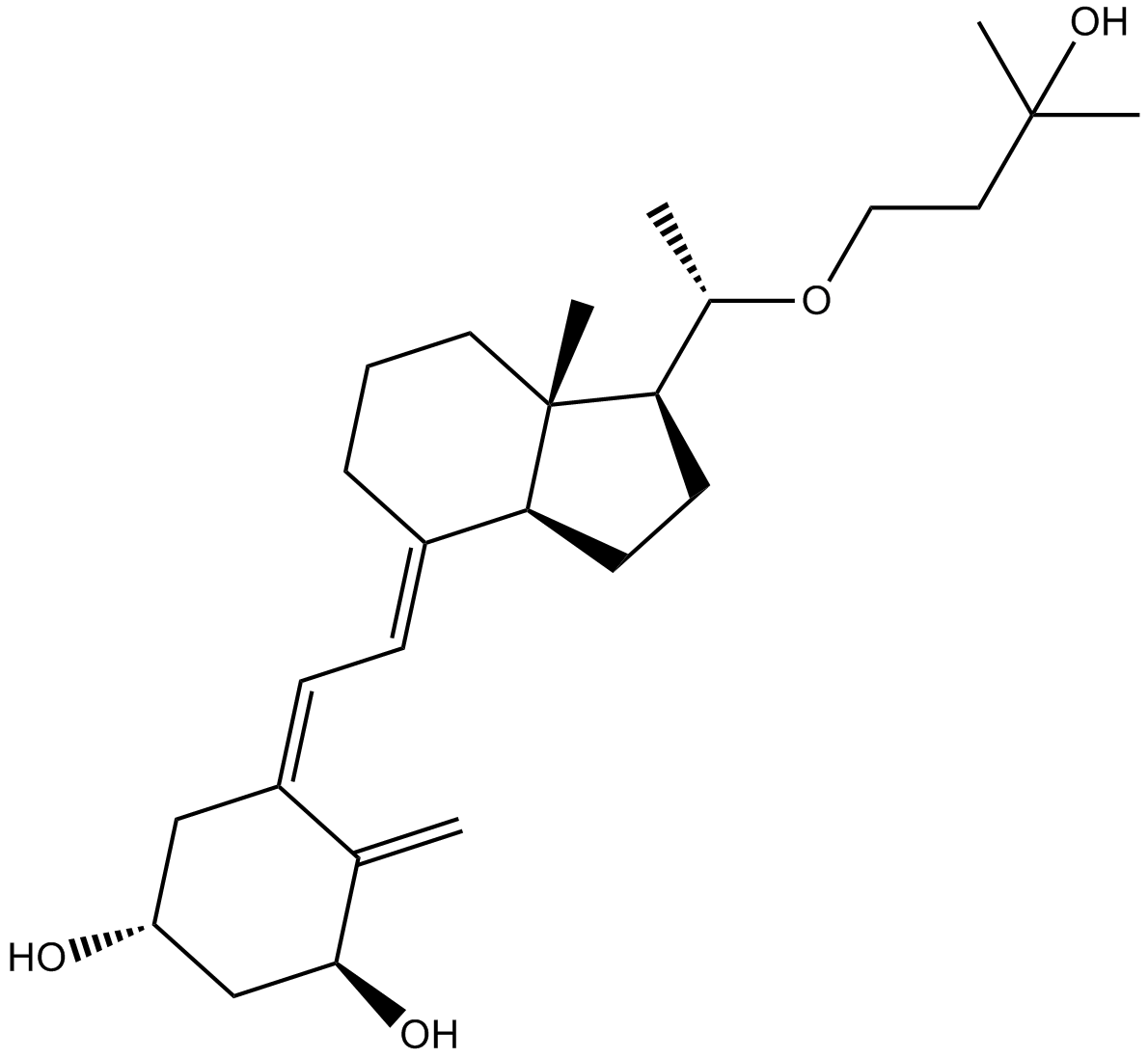Maxacalcitol (Synonyms: Maxacalcitrol) |
| Catalog No.GC13090 |
An analog of calcitriol
Products are for research use only. Not for human use. We do not sell to patients.

Cas No.: 103909-75-7
Sample solution is provided at 25 µL, 10mM.
Maxacalcitol (22-oxacalcitriol (OCT)) is an analog of active vitamin D.
In human vascular smooth muscle cells (VSMCs), vehicle-treated VSMCs exhibited massive mineralization, which was inhibited by maxacalcitol in a concentration-dependent manner. [1] In vitro, maxacalcitol and calcitriol markedly inhibited the proliferation and caused a G1 phase cell cycle arrest. In vivo, maxacalcitol suppressed the growth of BxPC-3 xenografts more significantly than calcitriol, and did not inducing hypercalcemia. Responsive cells had many functional vitamin D receptors. [2]
In diabetic rats aged 20 weeks, maxacalcitol reduced albuminuria and mesangial matrix enlargement, with limited differences were observed in blood pressure and creatinine clearance among the 3 treatment groups which were insulin, maxacalcitol, and vehicle groups. Systemic and intrarenal oxidative stress was reduced by maxacalcitol therapy. Maxacalcitol attenuates the progression of diabetic nephropathy by suppression of oxidative stress and amelioration of the Nrf2-Keap1 pathway in nonobese type 2 diabetes without significant changes in blood pressure and glomerular filtration rate. [3]
References:
1.Aoshima Y, Mizobuchi M, Ogata H et al. Vitamin D receptor activators inhibit vascular smooth muscle cell mineralization induced by phosphate and TNF-α. Nephrol Dial Transplant. 2012 May;27(5):1800-6.
2. Kawa S1, Yoshizawa K, Nikaido T et al. Inhibitory effect of 22-oxa-1,25-dihydroxyvitamin D3, maxacalcitol, on the proliferation of pancreatic cancer cell lines. J Steroid Biochem Mol Biol. 2005 Oct;97(1-2):173-7. Epub 2005 Jul 20.
3. Nakai K, Fujii H, Kono K et al. Vitamin D activates the Nrf2-Keap1 antioxidant pathway and ameliorates nephropathy in diabetic rats. Am J Hypertens. 2014 Apr;27(4):586-95. doi: 10.1093/ajh/hpt160. Epub 2013 Sep 11.
Average Rating: 5 (Based on Reviews and 30 reference(s) in Google Scholar.)
GLPBIO products are for RESEARCH USE ONLY. Please make sure your review or question is research based.
Required fields are marked with *




















